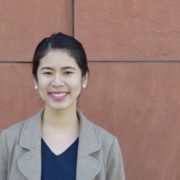In this week’s column, we address the Violence Against Women Act, commonly known as VAWA. VAWA is a federal law that allows victims of domestic violence to obtain lawful permanent residence (a green card) without the help of their abusers. Typically, a United States citizen or lawful permanent resident (LPR) submits an application “petitioning” for his/her spouse or child. Once immigration authorities approve this family petition, the spouse or child (also known as the beneficiary) becomes eligible to apply for LPR status.
However, VAWA creates a different path for victims of domestic violence. Under this law, the abused spouse or child can “self-petition” without the help or involvement of the abuser. This option is important because many abusers may control the immigration process and the victim’s immigration status, including threatening deportation, as part of the ongoing abuse.
The information below is not a substitute for legal advice. Assessing VAWA eligibility and procedural requirements can be very complicated. Also, new changes to the way immigration authorities review and decide applications may create additional risks for certain applicants. It is critical that you consult with an experienced and trustworthy immigration attorney before proceeding with any immigration application. Below is the general eligibility information for VAWA self-petitions, but keep in mind that this information is not a substitute for any legal advice:
In order to be eligible to apply for a VAWA self-petition:
1) You must be legally married to (or the child of) a U.S. citizen or LPR.[1] If you divorce your abuser because of the abuse, you must apply for the VAWA self-petition within two years of your divorce. If your abuser dies, you must file the self-petition within two years of the death.
2) You must show that you married in good faith. This means that you married your spouse intending to establish a life together, not just to gain legal immigration status.
3) You must have lived with your spouse in the United States.
4) You must be a victim of physical, sexual and/or psychological abuse by your spouse.
5) You are a person of “good moral character,” which generally means that you have not committed certain types of crimes. However, immigration law has many specifics on what constitutes good moral character, and an attorney can help you figure out whether you likely meet this requirement.
After the VAWA self-petition is approved, you can apply for a work permit, which allows you to work legally in the United States. Depending on where you live, you may also be eligible for certain types of government benefits. If your abuser is a U.S. citizen, you can apply for LPR status as soon as your VAWA self-petition is approved. If your abuser is an LPR, then you will be given a priority date and cannot apply for LPR status until your priority date becomes current. The LPR application process has requirements and fees separate from the VAWA self-petition application and should be completed by or in consultation with an immigration attorney.
If your abuser does not have immigration status, you may be eligible for another immigration benefit called “U nonimmigrant status” (U visa) instead of the VAWA self-petition which may eventually lead to LPR status. You should consult with an immigration attorney if you are a victim of domestic violence and have reported or are willing to report the crime to a law enforcement agency.
If you have questions about your situation or need legal assistance, please contact Advancing Justice – L.A’s Tagalog helpline at 855-300-2552.
[1] There are some narrow exceptions to this requirement, so if you believed that you were legally married to your spouse, but later found out the marriage was invalid, you should address this issue with an immigration attorney.
* * *
Lou Marie Reyes is a community legal advocate at Asian Americans Advancing Justice – Los Angeles. She joined the organization in February 2018 and staffs the Tagalog helpline, which prioritizes in-language assistance to the local Filipino community. Ms. Reyes works alongside Advancing Justice – LA’s attorneys that specialize in family law, domestic violence, citizenship and immigration, and employment law.






